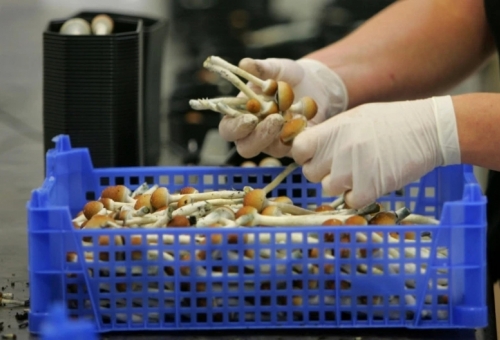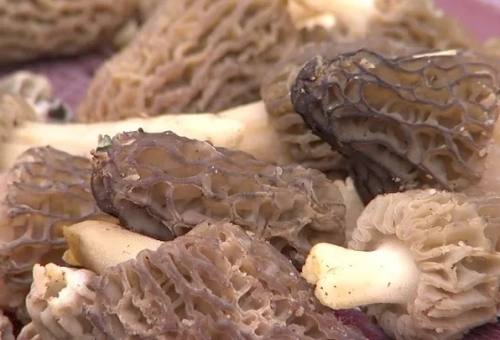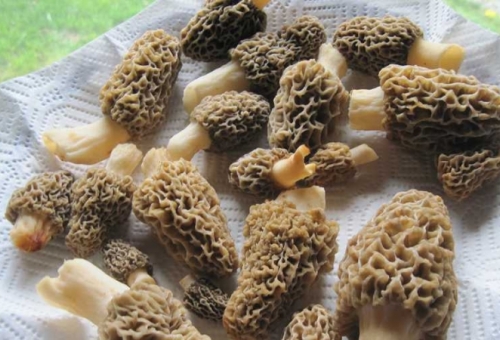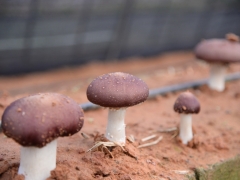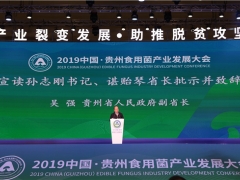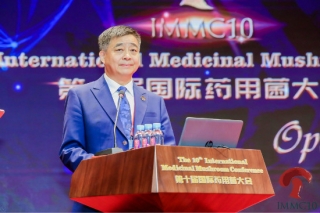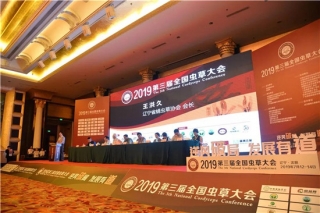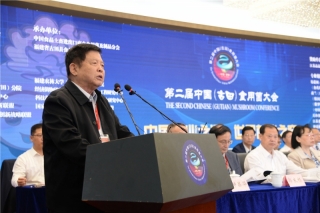Eben Bayer is a believer in the power of mushrooms. As cofounder and CEO of Ecovative, he’s built a business making compostable packaging from mycelium, the root structure of mushrooms, for companies that include Dell. He’s also dabbled in other products like bio-based leather in conjunction with Bolt Threads, and hopes to eventually use similar mycelium structures for healthcare. Now with plant-based foods like Impossible Burger and Beyond Meat having their moment, Bayer is spinning out a new company, called Atlast Food Co., to use mycelium to improve the structures of plant-based meats, including steaks and chicken.
“There are a lot of investors that want to invest in food,” Bayer told Forbes. ”I tell them we want to make lungs one day, and they’re not interested in that.”
Last December, Forbes wrote about Bayer’s early efforts to create bacon out of mycelium. At the time, Bayer, an alumnus of the 2015 Forbes 30 Under 30 list in Manufacturing & Industry, told us that the bacon he’d created was quite tasty, but that his dream was to create a steak. "The holy grail in meat is structure," he said then. "We made the bacon prototype to convince ourselves. Is this crazy? Is this a bad idea? It was an unbelievable idea."
The mycelium potentially has the right structure to be used as a scaffolding for a variety of plant-based "meats." It could be more dense like a steak, or more crispy, like bacon. To date, plant-based meats, like the Impossible Burger, have been limited to ground products because of the lack of such a structure, Bayer says, yet 75% of meat by quantity and 87% by dollar value is whole cuts.
So this year, Bayer began testing edible strains of mycelium. He came up with the first one in March. “We go into nature and we select gourmet mushrooms known by mushroom foragers and we take biopsies of them,” he says. The next step is to bring them back to the lab and make 10-inch by 20-inch slabs of the most delicious strains they can find. To date, Ecovative has brought on five different strains for use in food products.
Bayer is now talking with food who he declines to name (”I am under NDA with everyone,” he says) to develop the right ingredients for them. “We don’t like to work in a vacuum,” he says. “You want to make something quickly, eat your dog food, get feedback and improve it. You don’t want to spend years building the Juicero.”
Ecovative, Atlast, food, mycelium, mushroom roots, bio-based, bacon, meat, Impossible Foods, Eben Bayer
Mycelium "bacon" and avocado toastCOURTESY OF ECOVATIVE
Bayer, now 34, who grew up farming and raising pigs, developed the compostable mushroom packaging back in 2007. He and cofounder Gavin McIntyre, both graduates of Rensselaer Polytechnic Institute, spent years perfecting it. Today, that business comprises the bulk of Ecovative’s revenue, which Forbes estimates at more than $10 million. The business has raised a total of $30 million in funding to date.
While Bayer did the original research for the new foods business at Ecovative, by spinning it off each business will be able to focus. Atlast will work on food ingredient development, regulatory approval and production, while Ecovative will continue to do mycelium research and product development at its foundry in upstate New York. Both companies will have a business-to-business focus, and neither will sell products direct to consumers.
Bayer expects that after spinning out Atlast as a new entity, he will bring in investors (as yet to be determined) for a minority stake in it. In the short term, he will be CEO of both companies, but he expects to eventually hire a new CEO from the food industry for Atlast.
Bayer’s decision to create businesses in disparate areas reliant on similar technology mirrors what synthetic biology leader Ginkgo Bioworks has done (as Forbes wrote about recently). “On the corporate structure side, what Ginkgo has done is absolutely our inspiration,” Bayer says. “We’re not trying to copy Ginkgo, but we definitely want to rhyme with them.”
In fact, Bayer is already looking at additional areas where mycelium could provide structure to products, including skincare and health, where the same scaffolding structure that works for plant-based meat might eventually allow him to create organs. The latter is driven by personal experience: His son was born with small lungs and stayed in the ICU for 100 days. “That changed how I think about where we wanted to go,” Bayer says.





